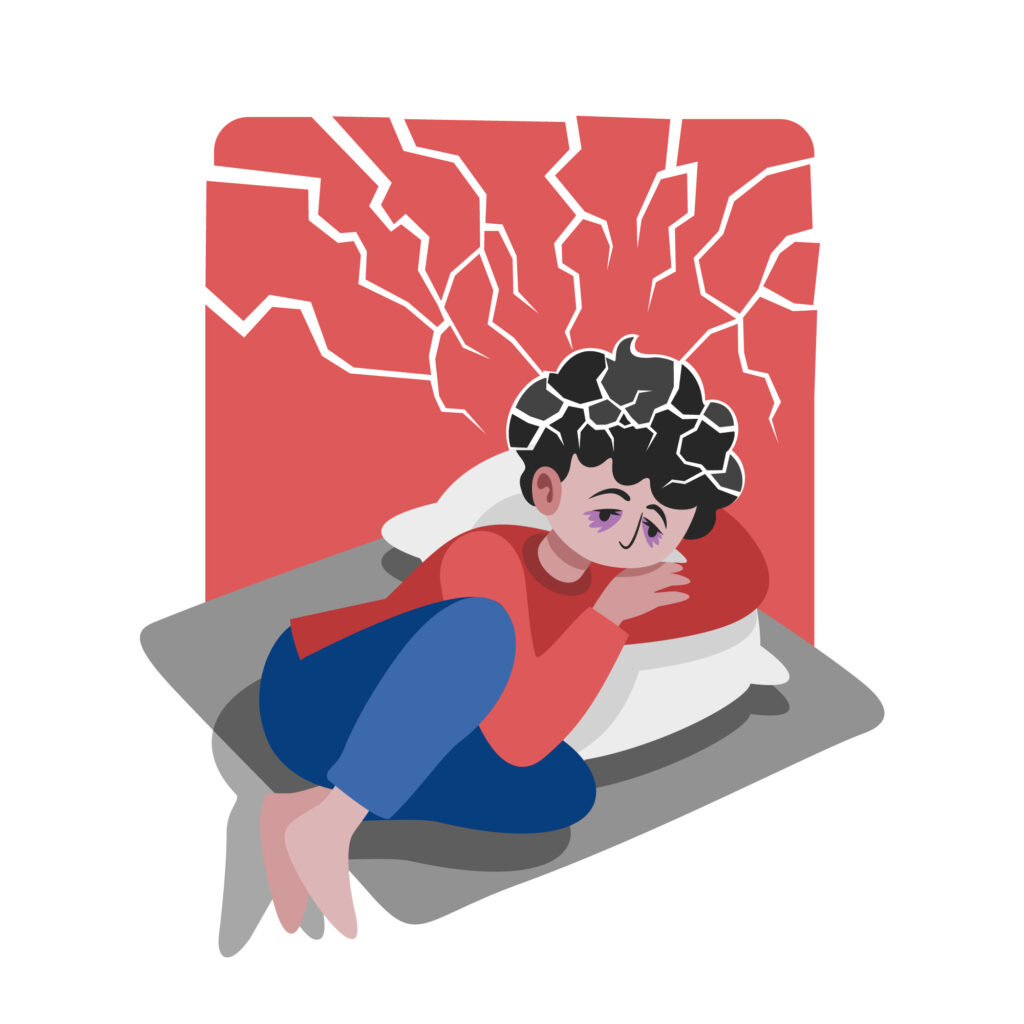
Schizophrenia is a chronic and severe mental disorder that affects how a person thinks, feels, and behaves. People with schizophrenia may seem like they have lost touch with reality, which can be distressing for them and for those around them. The symptoms of schizophrenia generally fall into three categories: positive, negative, and cognitive.
1. Symptoms of Schizophrenia
- Positive symptoms: These are psychotic behaviors not generally seen in healthy people. They include hallucinations, delusions, thought disorders, and movement disorders (e.g., agitated body movements).
- Negative symptoms: These are associated with disruptions to normal emotions and behaviors. Examples include flat affect (reduced expression of emotions), reduced feelings of pleasure, difficulty beginning and sustaining activities, and reduced speaking.
- Cognitive symptoms: These symptoms can be subtle or severe and include problems with executive functioning (e.g., planning, organizing), focusing or paying attention, and problems with working memory.
2. Medications Used in Schizophrenia
Medications are the cornerstone of schizophrenia treatment, and antipsychotic medications are most commonly prescribed.
- First-Generation Antipsychotics (Typical Antipsychotics)
- Examples: Chlorpromazine (Thorazine), Haloperidol (Haldol), Fluphenazine (Prolixin)
- Mechanism: These drugs primarily work by blocking dopamine receptors in the brain.
- Side effects: They can cause significant side effects, including extrapyramidal symptoms (tremors, rigidity, bradykinesia), tardive dyskinesia, and sedation.
- Second-Generation Antipsychotics (Atypical Antipsychotics)
- Examples: Risperidone (Risperdal), Olanzapine (Zyprexa), Quetiapine (Seroquel), Aripiprazole (Abilify), Clozapine (Clozaril)
- Mechanism: These drugs also block dopamine receptors but are more selective and also affect serotonin receptors, which may account for their different side effect profiles.
- Side effects: Metabolic syndrome (weight gain, diabetes, high cholesterol), sedation, and in the case of clozapine, agranulocytosis (a potentially life-threatening reduction in white blood cells).
- Third-Generation Antipsychotics
- Examples: Aripiprazole (Abilify), Brexpiprazole (Rexulti), Cariprazine (Vraylar)
- Mechanism: These drugs act as partial agonists at dopamine receptors, balancing dopamine levels rather than fully blocking the receptor.
- Side effects: These tend to have fewer metabolic side effects compared to second-generation antipsychotics, though they may still cause some similar side effects like insomnia and agitation.
- Adjunctive Medications
- Antidepressants: Used to treat depression symptoms that might occur alongside schizophrenia.
- Benzodiazepines: Used for anxiety and agitation but are not recommended for long-term use due to the risk of dependence.
- Mood Stabilizers: Such as lithium, are sometimes used if the patient has symptoms of bipolar disorder or mood swings.
3. Recent Developments in Schizophrenia Treatment
Recent research in schizophrenia is exploring new treatment approaches that go beyond traditional antipsychotic medications:
- Novel Antipsychotic Medications: New drugs like lumateperone (Caplyta) offer different mechanisms of action with the aim of reducing side effects and improving efficacy.
- Long-Acting Injectable Antipsychotics: These formulations, such as paliperidone palmitate (Invega Sustenna) and aripiprazole lauroxil (Aristada), provide more consistent medication levels and improve adherence by reducing the frequency of doses.
- Cognitive Behavioral Therapy (CBT) and Other Psychosocial Treatments: CBT has been increasingly integrated into treatment plans for managing symptoms, particularly in reducing the impact of delusions and hallucinations. Other psychosocial treatments focus on improving social skills and vocational training.
- Digital and Mobile Health Interventions: Tools like smartphone apps and telemedicine are being developed to help patients manage their symptoms, track their medication use, and stay in contact with healthcare providers.
- Genetic Research and Biomarkers: Advances in understanding the genetic underpinnings of schizophrenia are helping to identify biomarkers that could lead to personalized medicine approaches, tailoring treatment to the individual’s genetic profile.
- Anti-inflammatory Treatments: There is growing evidence linking inflammation with schizophrenia, and research is ongoing to develop treatments targeting inflammation, such as with the use of minocycline, a common antibiotic that also has anti-inflammatory properties.
- Psychedelic Research: There is emerging interest in the potential therapeutic uses of psychedelics like psilocybin, under controlled conditions, to treat certain aspects of schizophrenia, although this is still in the early stages of research.
4. Challenges and Future Directions
While there have been significant advances in the treatment of schizophrenia, several challenges remain, including:
- Treatment Resistance: A subset of patients does not respond well to existing medications. Clozapine remains the most effective treatment for treatment-resistant schizophrenia, but it carries significant risks.
- Side Effects Management: The side effects of antipsychotic medications, especially long-term side effects, are a major concern and an area of active research.
- Improving Patient Adherence: Adherence to medication regimens is often poor, leading to relapses. Long-acting injectables and digital health interventions are being developed to address this issue.
- Stigma and Access to Care: Stigma surrounding schizophrenia continues to be a barrier to seeking and receiving care. Efforts to reduce stigma and improve access to mental health services are ongoing.
For more detailed and up-to-date information, I would recommend looking into recent reviews and studies in medical journals.



Pingback: Abilify-Asimtufii Profile - Medicine Profile